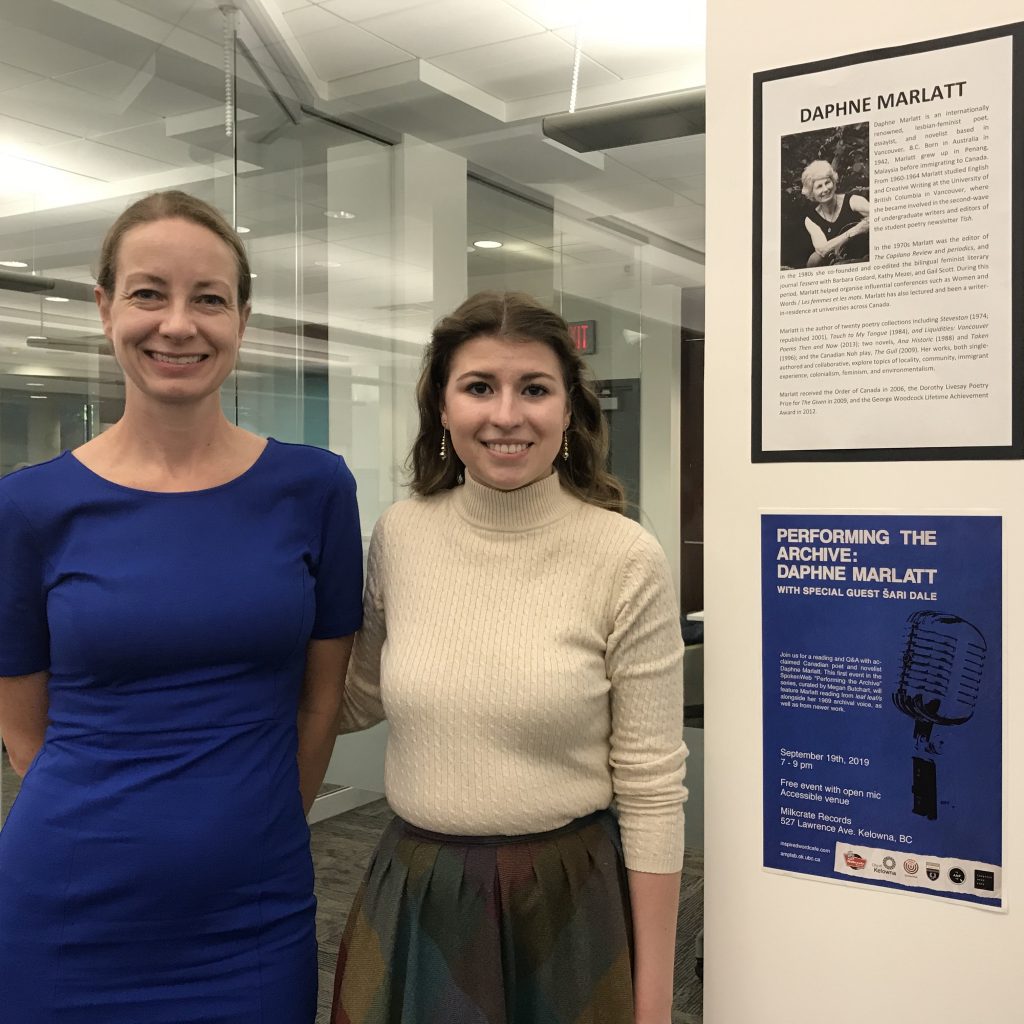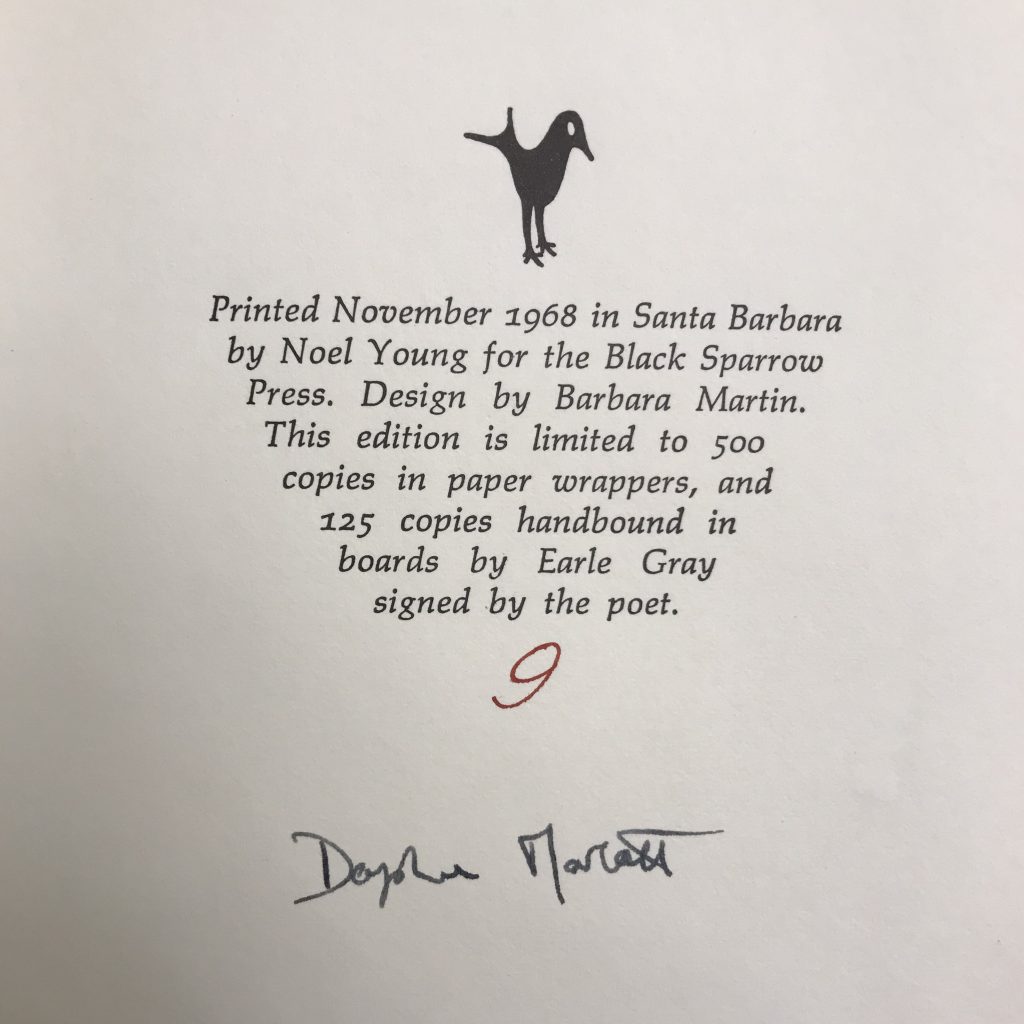
By Karis Shearer (Director, AMP Lab)
Over the past few months, the UBCO SpokenWeb team has been digitizing the 160+ analog tapes in our SoundBox Collection. Most of these reel-to-reel and cassette tapes were made between 1960 and the late 1980s in Vancouver and in many cases it’s unlikely they’ve been listened to in a few decades. They’re fascinating. As we digitize, I’ve asked the undergraduate student research assistants working on the SSHRC-funded SpokenWeb project to identify recordings in the SoundBox they find especially compelling. We’ve then co-produced events that highlight those recordings and writers. What kinds of events, you ask? Let me explain:
Through the AMP Lab and with collaborators like IWC, we run a series of SpokenWeb “Performing the Archive” events that are primarily student-initiated and student-run. Performing the Archive events all have three things in common:
- they’re public, often participatory, and emphatically community-building;
- they offer students meaningful leadership opportunities that are faculty-mentored and supported with funding; and
- they make literary audio artifacts from the past resonate in the present through remediation.
The Epic Reading: As their name suggests, “Epic Readings” are… epic. Lasting 3-4 hours, an epic reading features the life work of a single writer and is curated & facilitated by a student who brings research expertise on that writer’s work. Most importantly, epic readings are participatory: people are invited to drop in and out, to join the circle and voice poems. Each person takes a turn reading a poem before passing the book along to their neighbour. For those who want to join us, no prior knowledge about poetry or the writer is necessary — curiosity is the only requirement. We’ve found students, staff, faculty, and members of the public have been motivated to join us for all kinds of reasons: to practice performance; to practice reading aloud in English; to voice and hear poetry; to get to know a writer’s work in-depth; to eat snacks (yes, there are snacks) and meet new friends. Every one of these is an excellent reason! So far we’ve collectively voiced the life works of Sharon Thesen (2018) and Daphne Marlatt (2019).
The Curated Close Listening: In the case of the “Curated Close Listening,” a guest curator (often a student) selects a 5-minute piece of archival audio from our SoundBox Collection or from PennSound and introduces the clip (who is it? what’s the context? what might we listen for? how do we listen?) to the group. The group listens together and then, from a variety of perspectives, discusses what they’ve heard. Like the “Epic Reading,” no knowledge of the poet or poetry is required — many very insightful comments have come from those unfamiliar with poetry.
Performing the Archive: “Performing the Archive” is a public reading event in which we invite a poet to read with their “past self,” or to put it another way, with their archival recorded voice. Here, the intertwining of past-voice (recorded) and present-voice (live) in performance invites us to consider changes in voice (timbre, accent, etc), reading style, and more.
All of these events are deeply affective; they touch a variety of senses, invoke memories, and create connections amongst people. In the upcoming blog posts, you’ll hear from Megan Butchart (BA Hons, English & History) who invited UBC alumna, poet and novelist, Daphne Marlatt (Order of Canada) to participate in a series of events she hosted in September 2019. On the recording titled “leaf leaf/s” (1969) Marlatt is 26 years old, not much older than Megan is now, and I am incredibly grateful to Daphne for agreeing to join us at UBCO for events that brought her into conversations with our community of students. You’ll also hear from Amy Thiessen (BA Hons English) whose beautiful reflection on her participation in the “Curated Close Listening” event brings its resonances into focus.
